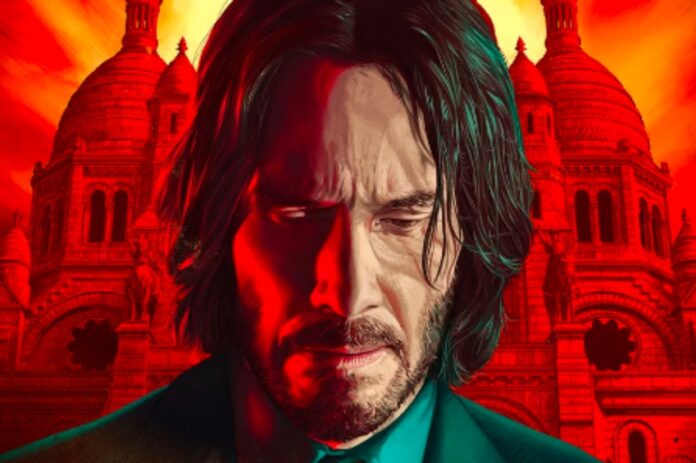John wick chapter 4 cinematography: The John Wick movie series has won fans over with its gripping plot, thrilling action scenes, and stunning graphics. Fans are eagerly anticipating the next chapter in the life of the fabled assassin as Chapter 4 draws near. The series’ outstanding cinematography is a significant factor in its success and immersive experience. This article delves into the art of John Wick: Chapter 4’s cinematography, examining the visual tricks that give the movie a fresh new look.

Camera movement and choreography that are seamless
The action scenes in the John Wick movies are known for being expertly orchestrated, and Chapter 4 intends to push the envelope even further. These elaborately planned fight scenarios are captured and enhanced in large part by the cinematography. The camera follows the action without missing a beat, resulting in a dynamic and fluid visual experience. The audience is completely immersed in the heart-pounding intensity of the battles because to the careful coordination between the actors, stuntmen, and camera operators, giving them the impression that they are actively participating.
Visual Framing and Composition
John Wick: Chapter 4 painstakingly crafts each frame to maximise aesthetic impact. To generate visually arresting compositions, the cinematographers use a variety of methods. Each frame is thoughtfully composed to portray the desired tone and intensity of the action, from wide shots that emphasise the immensity of the settings to tight close-ups that capture the raw emotion on the protagonists’ faces. Precision framing within the frame and the use of symmetrical framing give the images a sense of balance and symmetry that improves their overall aesthetic appeal.
Shadow and Light Play
In any movie, lighting plays a crucial role in creating the mood and atmosphere, and John Wick: Chapter 4 is no exception. The use of light and shadow in the cinematography enhances the visual storytelling. The contrast between dark and lit parts gives the images depth and texture as well as a sense of mystery and intrigue. Dramatic usage of shadows heightens the tension at crucial junctures by generating a sense of suspense and danger.
Active Camera Work
John Wick: Chapter 4‘s powerful and captivating camera work immerses viewers even more in the action. The cinematography keeps the viewers on the edge of their seats with sweeping camera motions that follow the actors’ movements and dynamic tracking shots that heighten the sensation of speed and intensity. Viewers get a front-row seat to the action-packed world of John Wick thanks to the employment of cutting-edge camera rigs and techniques like steadicams and drones, which enable seamless transitions and engrossing perspectives.

Conclusion
The film is taken to a whole new level by the cinematography in John Wick: Chapter 4, which demonstrates the mastery of visual narrative. The cinematographers produce a visually immersive experience that supports the compelling narrative of the movie through fluid choreography, visually stunning compositions, clever lighting, and dynamic camera work. Fans continue to grow more and more excited about the next visual magnificence as they impatiently await the publication of Chapter 4. The John Wick series demonstrates that cinematography is a sort of art that can genuinely enrich the cinematic experience with its dedication to pushing the limits of action filmmaking.

